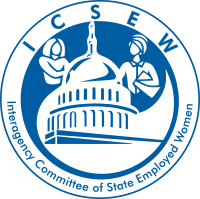Many of us are now experiencing depression or anxiety. Here's how to recognize signs and get help

Editor’s note: This article originally appeared in the Washington State Employee Assistance Program’s July Newsletter.
Nearly one third of adults in the U.S. now show signs of clinical levels of depression or anxiety, according to the National Center for Health Statistics (NCHS). For some, it can be difficult to know when to reach out for professional help. Please consider contacting the EAP for support, at 877-313-4455, if you’re experiencing any of the following:
- a traumatic event or vicarious trauma leads to prolonged symptoms of re-experiencing (flashbacks, nightmares), avoidance (of thoughts, people, situations), negative thoughts and mood (shame, fear), and arousal & reactivity (irritable, angry, reckless, issues with concentration or sleep).
- anxiety causes you to worry excessively in intensity, frequency, or amount of distress it causes, or when you find it difficult to control the worry (or stop worrying) once it starts.
- you are feeling little interest or pleasure in doing things you once enjoyed, or you are feeling down, depressed, hopeless, or are having thoughts of suicide.
In the NCHS survey, Black and Latinx/Hispanic adults were more likely to report anxiety or depression than whites or Asians. This tragic yet unsurprising result makes sense, given the harsh realities and impacts of longstanding systemic racism in our country coupled with the disproportionate health and economic burden of COVID on BIPOC. Know that EAP is committed to and is actively working to dismantle oppression within our program and services. We wholeheartedly support your right to have a safe space in counseling, and you are welcome and encouraged to ask for a counselor who identifies as a person of color—we will do our best to accommodate your request.
For additional resources, check out our COVID-19 Resources and Racism & Mental Health Resources pages.
Remember: you are irreplaceable, and your mental health and wellbeing are precious. Don’t hesitate to reach out to us, at 877-313-4455.

